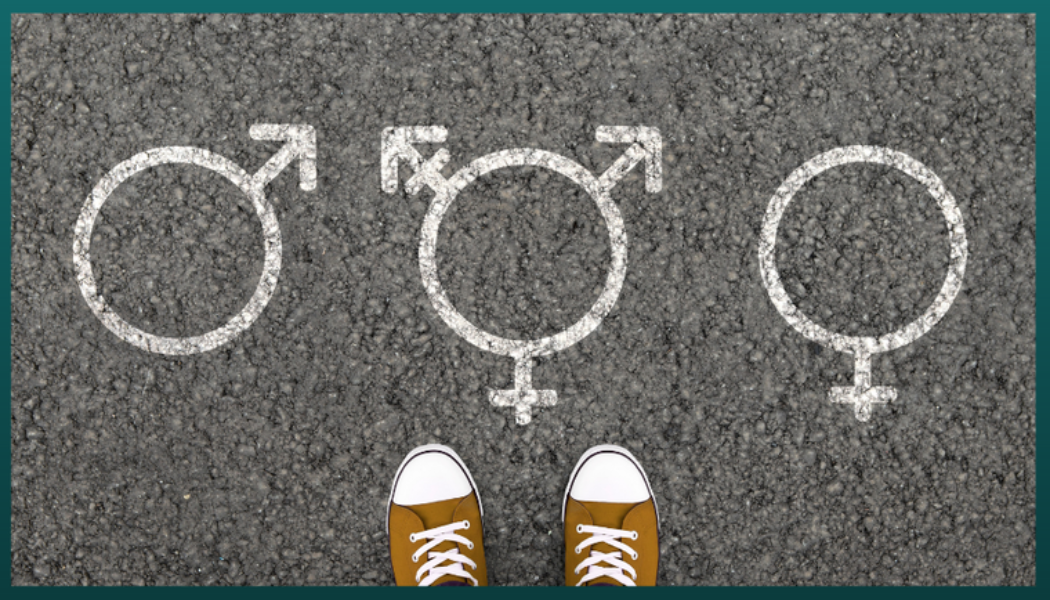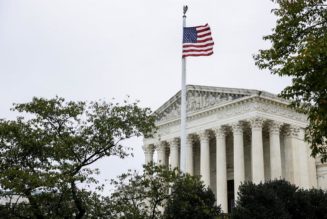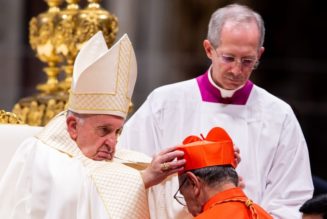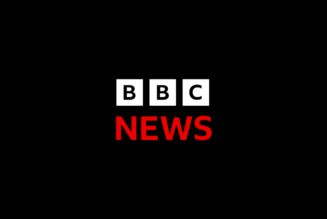
Catholic experts are lauding the Archdiocese of Milwaukee’s new document responding to gender theory for its pastoral tone and anthropological clarity, as well as its potential for inspiring other dioceses and Catholic institutions to follow suit.
Titled Catechesis and Policy on Questions Concerning Gender Theory, the document was published on Jan. 20. It aims to offer guidance for people working in “parishes, organizations, and institutions of the Catholic Church in the Archdiocese of Milwaukee” on a challenging issue in American society today.
“The document strikes me as very balanced, written from a perspective of understanding and concern for those involved in the unique pastoral challenge of accompanying members of the faithful who are experiencing gender identity discordance,” said Father Philip Bochanski, executive director of Courage International, a Catholic apostolate that ministers to men and women experiencing same-sex attraction. “It acknowledges the reality that contemporary secular culture does not share the Church’s perspective on what it means to be a human person, without taking a defensive stance on the one hand, or conceding to the culture on the other.”
The archdiocese’s document cites an increase in the experience of “gender dysphoria and gender discordance,” especially among young children and adolescents, as the basis for its response, along with the increasingly prevalent narrative “that the solution to such dysphoria is to affirm one’s ‘experienced gender’ over and against one’s biological sex.”
The document critiques the claims of “gender theory,” which it defines as, “An ideology or theory that denies the difference and reciprocity in nature of a man and a woman, and envisages a society without sexual differences, thereby eliminating the anthropological basis of the family.”
Needed Guidance
Experts say that the Archdiocese of Milwaukee’s guidance is addressing the real needs of Catholics on the ground.
“It is clear that issues concerning gender are becoming more and more prevalent in Catholic institutions,” said Jennifer Morel, director of research for the International Institute of Culture and Gender Studies.
Morel, who has co-authored the upcoming book Woman and Man He Resurrected Them with ATC Press, says she has discussed the topic with “administrators, catechists, and priests all over the world.”
“Often, schools and parishes are busy searching for a better understanding of Church teaching and possible guidelines, and officially, there is very little to aid them at this point,” she said. “I am very happy to see these questions of gender being addressed at the diocesan level.”
The Archdiocese of Milwaukee joins a growing list of U.S. dioceses that are releasing their own guidance on gender theory. Others that have done so include the Diocese of Arlington, which issued a catechetical document in August 2021, while the Diocese of Marquette published its own instruction in December.
Diocesan response to the issue coincides with reports that the USCCB has been blocked from providing guidance at the national level by the Vatican’s Congregation for the Doctrine of the Faith. The bishops’ conference drafted a document in 2018, but it was put on ice after CDF representatives told the USCCB they’d be issuing their own teaching document that would take precedence, according to a report by The Pillar, which also includes the text of 2018 document. While the Congregation for Catholic Education addressed the issue with its 2019 document, Male and Female He Created Them, no formal guidance has been released by the Vatican’s doctrinal office.
Father Bochanski notes that Milwaukee’s document is aimed at “clergy, religious and lay pastoral ministers and educators who will be carrying out this accompaniment in individual cases.” It “is meant to equip them to present its contents in personal conversations, where their own pastoral tone will make it even easier for an individual or family to hear and understand.”
The Document’s Directives
The policies outlined in the document lay out a series of directives on various topics related to gender expression, such as “preferred pronouns,” attire, and the use of bathrooms and locker rooms which correspond to one’s biological sex.
Included in this section is a paragraph on the use of puberty blockers and hormones for the purpose of gender transition, a practice which some countries have restricted for minors due to the irreversible damage that can be caused. The document bans the possession or distribution of such drugs “by students and those entrusted to the care of the Church” while on school property.
This section is “an application of the catechetical teaching presented earlier in the document, that each person is called to accept his or her sex (male or female) as a gift,” said Mary Rice Hasson, director of the Person and Identity Project.
“A person who takes hormones or other medication for a ‘gender transition’ conveys rejection of his or her sexual identity, while asserting a ‘new’ identity at odds with biological sex,” she told the Register. “A person heading down that path needs to recognize that such a course of action is incompatible with the Catholic understanding of the person, and the diocese won’t cooperate in it.”
While Hasson admits that she probably would have done the section on medication “differently,” she understands the intent, and found the policy to be “very helpful” overall.
Indeed, Hasson’s only critique of the document as a whole has to do with the terminology used. “Generally, I don’t think Catholic policies should use the language of gender ideology, unless in quotations,” she said. “‘Gender,’ for example, is a word that is now owned and defined by the left, in ways incompatible with Catholic teaching.”
Criticisms and Concerns
Some have leveled criticism against the document, alleging that it’s in conflict with science and potentially “damaging” to individuals seeking to transition to the opposite gender.
“The guidelines ignore the enormous amount of scientific and social scientific research showing that supporting people through gender transition promotes well-being and flourishing,” states a Jan. 20 article from New Ways Ministry, a group which has been censured by Catholic leaders over the years for its heterodox views on sexuality. “The archdiocesan policies, which insist on opposing, blocking, and penalizing a person’s development concerning their gender will certainly lead to mental and emotional problems, forms of self-harm, and lives of confusion, pain, and sorrow.”
But Hasson says these kinds of criticisms are off the mark. “There is nothing kind and compassionate about affirming a student’s false self-perception, or encouraging the person to pursue an alternate ‘identity’ at odds with biological sex,” she said.
“No one can change sex,” Hasson stressed. “A ‘gender transition’ cannot change the person’s cells or fundamental identity — it can only injure or destroy the person’s healthy body.”
“Suggesting otherwise to young people sets them in hopeless pursuit of a mirage that can never be obtained, while leaving untreated the very real wounds that are the source of their suffering.”
Acknowledging that it can be “damaging” to be “unkind and unloving,” Dr. Gregory Bottaro, psychologist and founder of the Catholic Psych Institute, stressed that it is likewise damaging to promote or be “confusing about something that’s untrue.”
“There’s a responsibility and an obligation for the good of people, for human health and flourishing, to teach and promote what is actually true about the human person,” Bottaro told the Register. “What is most damaging is to teach people things that are not true about themselves.”
“The general error of our age is the separation of body and spirit,” he said, adding that the separation of body and spirit is no more possible than saying “that water is not really the unity of hydrogen and oxygen.”
“We can act as though [the body and spirit] can be separated, but the person is what the person is,” he said.
Echoing the document’s catechesis on the unification of body and soul, Bottaro observed that, with this new document, the Church “is reiterating a basic philosophical truth about the human person.”
“The air is made up of oxygen, and humans breathe oxygen, and that’s why we stay alive, whether somebody believes that or not,” Bottaro said. “The human person is also a unity of body and spirit, whether somebody believes that or not.”
Grounded in Science
Bottaro takes issue with “generalized claims” suggesting that the archdiocese’s policies are in conflict with science.
“Whenever you hear somebody quote science, and say ‘science’ claims this, or ‘science’ claims that, it’s a very unscientific and unprofessional voice speaking,” Bottaro said. “Unless we’re talking about a specific study, a specific hypothesis that’s been disproved by a specific study, and that specific study is peer-reviewed, and is either validated or invalidated, then there’s not really much of an argument to be made or to be defended.”
In fact, some studies seem to indicate the opposite of what the document’s critics claim.
“There is no long-term evidence that ‘transition’ resolves the mental health problems typically experienced by someone asserting a transgender identity,” Hasson said. “In fact, studies do show that, in the long term, medical and surgical ‘gender transition’ fails to lessen suicide risks or mental health problems.”
“The medical and surgical interventions involved in ‘transition,’” Hasson continued, “do more than change the person’s appearance — they destroy the natural functions of what was a healthy body, resulting in infertility, loss of sexual function, and health complications.”
Morel echoes these statements, citing scientific studies which indicate the potential for serious harm for people seeking to transition to the opposite gender.
“Science makes it clear that attempts to change, modify, or escape from our sex are extremely damaging to the human person,” she said.
Morel explained how statistics show that people who undergo “gender confirmation” surgery are “19 times more likely to die by suicide,” with this number beyond the already heightened risk of suicidal ideations for people who identify as transgender versus the general population, 41% to 5%, respectively.
Additionally, Morel noted the “levels of gender dysphoria or discontent” have skyrocketed “among the female adolescent population,” referencing a 2018 report out of the U.K. which found a 4400% increase in the last ten years.
Some countries, like Sweden — “one of the first to begin gender confirming surgeries” — have outlawed puberty blockers and cross-sex hormones for children, “due to these statistics and insufficient evidence to justify early medical interventions,” Morel explained. She added that studies show 80-95% of children with gender discontent eventually identify with their bodies without surgical intervention.
“While theology and science approach truth from different angles, when done well, they both illuminate that same truth,” Morel said.
A Blueprint to Follow
While experts are supportive of diocesan efforts to respond to the confusion and harms of gender theory, they also emphasize that more work needs to be done.
For instance, Morel advises that the Archdiocese of Milwaukee’s policies be supplemented by additional teachings “on theology, philosophy, science, and gender theory, theoretically and politically.”
“In this same vein, it would be important to highlight that, while biology can indicate someone’s sex, sex is not only biological,” she stressed. “Fleshing this out is important in helping teachers and youth ministers, as well as students and parishioners, to understand that the Catholic Church is teaching a fuller idea of sexual identity, and not biology as destiny. Being created male and female is not an imposition but, as the document indicates, a gift and a calling.”
“Implementing a policy without diving into the ‘why’ and ‘wherefore’ makes it much more difficult for those in teaching and ministry to ‘be able to give a reason for their hope,’” she said, citing 1 Peter 3:15.
Additionally, “in supplementing this document,” Morel said, “it would be extremely important to talk about what pastoral care for those suffering from gender dysphoria or discontent looks like.”
“Just as Catholics have always been in the forefront of offering physical medical care, as seen in the numerous Catholic hospitals all over the world,” she said, “we need to use the discoveries of psychology to make sure that our pastoral ministry and care for those who suffer is also addressing real needs, and not just our perceptions of those needs.”
Reflecting on the wider Church, Father Bochanski hopes that the document will help bishops and dioceses “appreciate the tone created by this document, especially by the way that it lays a foundation in the preamble and catechetical section, and take a similar approach when creating their own policy documents.”
Father Bochanski noted the confusion resulting from disunity in the way dioceses and parishes address moral issues, leaving “the faithful confused and more likely to ignore the issue and the Church’s teaching altogether.” He said that “ideally,” Catholic bishops would “collaborate with one another in creating a model policy that could be used, in whole or in part, by every diocese.”
“It is imperative that the bishops — at least in our country, and ideally worldwide — speak with one clear voice on issues of faith and morals that affect human life, happiness and salvation so profoundly.”
Join Our Telegram Group : Salvation & Prosperity





